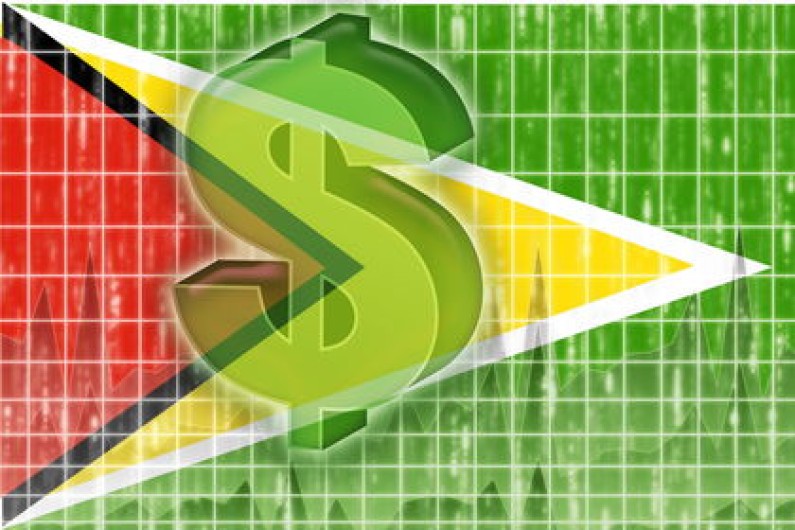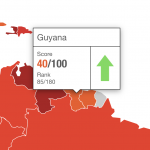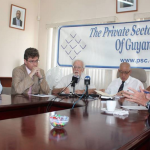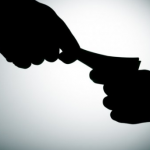
The Transparency International Group believes there is need for a greater level of transparency in Guyana’s Extractive Sector.
In its latest corruption index report, the Transparency Group gave Guyana a score of 40 when it comes to issues of corruption and transparency.
The corruption index by the global anti-corruption watchdog is based on a combination of at least 3 data sources drawn from 13 different corruption surveys and assessments, with zero (0) signifying highly corrupt and 100 meaning very clean.
According to the just released 2022 Report for the Americas, while Guyana has made some improvements over the past 12 years in fighting corruption, that fight appears to have come to a standstill in recent times.
“The oil-rich nation must still place stronger emphasis on building a well-functioning democratic system and implement greater levels of transparency and oversight, especially in the extractive industry. Corruption in this sector implies the loss of billions of dollars, which could be used to improve public services and development in one of the poorest countries in the hemisphere,” Transparency International said in the report.
Transparency International said the 2022 Corruption Perceptions Index (CPI) shows that most countries in the world are failing to stop corruption, noting that the Americas, in particular, are a ‘fertile ground for criminal networks and human rights abuses.’
For the fourth consecutive year, the Americas scored an average of 43 out of 100 in the CPI.
“A lack of bold, decisive action to fight corruption and strengthen public institutions is fuelling organised criminal activities, undermining democracy and human rights, and threatening the achievement of the Sustainable Development Goals (SDGs). This is, in turn, sparking violence, environmental damage and migration across the hemisphere,” Transparency International said.
Uruguay and Canada, each with a score of 74 are deemed to be the cleanest countries in the region followed by the United States with 69, and Chile with 67.
However, Venezuela (14), Haiti (17) and Nicaragua (19) remain at the bottom of the index with the lowest scores.
According to the global anti-corruption watchdog, in those countries it is difficult to draw a line between public institutions and criminal activities.
In Latin America, it said weak and unaccountable public institutions have created fertile ground for organised criminal networks to flourish, fuelling violence and insecurity.
“In many countries, law enforcement and corrupt officials collaborate with criminal gangs or accept bribes in exchange for turning a blind eye to their illicit activities. In Honduras (23), Guatemala (24) and Peru (36), evidence suggests that organised criminals wield a strong influence over candidates and politicians, financing electoral campaigns or even running for public office themselves,” the global watchdog explained.
The report also said the impact of the intertwined criminal and political interests are felt, particularly, by the most marginalised groups in society, and often result in the destruction of natural resources.











You must be logged in to post a comment Login